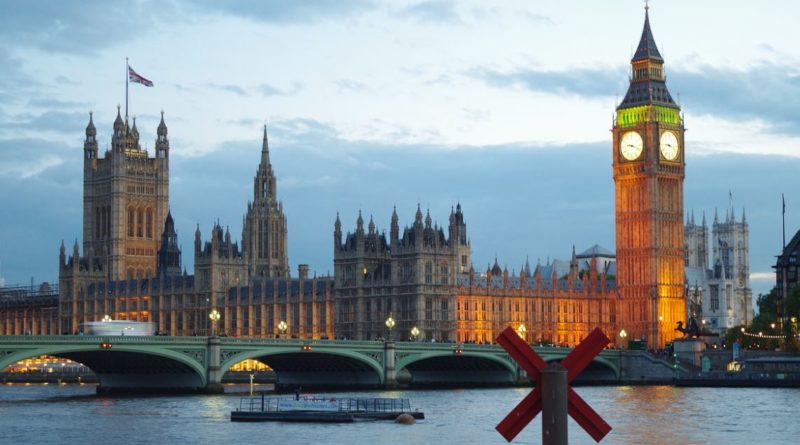Ask the trade: Grading Government performance through the pandemic
While No.10 is definitely not having a party, small businesses are pondering the pandemic and its effects on inflation, wages, corporate competition and slow progress on the Gear Change ambition. Two shops share their take on what the Government has got right and wrong in the past year…
 How confident and happy in the Government have you been during the pandemic in terms of small business support?
How confident and happy in the Government have you been during the pandemic in terms of small business support?
Jon Dean, Cycle Street
With Business Rates suspension and classification as “Essential Support Services” enabling us to remain trading, I feel that the Government helped the small businesses, in particular the cycle industry, incredibly well.
David Howard, Big On Bikes
The Job Retention scheme and the Business Rate Relief Grant have been a great success in helping small businesses retain and reduce overheads in difficult times and should be applauded. However, although we have been able to stay open as a “key industry”, the confusion and mixed messages have been difficult to work with. Planning has been very difficult for businesses, employers and employees alike.
In truth, I cannot say we have been happy or confident in how the Government have handled the pandemic overall, there have been some small successes but not enough to offset the harm that has been caused.
The small business index has tax burdens and labour shortages as a leading concern for small business. What’s the most challenging factor in play for you that the Government could influence?
Jon Dean, Cycle Street
Paying Taxes is part of running a business at whatever rate is levied and this should be built into the business plan accordingly and costed for. However, the government in one hand states its support for the high street and small business in particular, yet in the other hand it allows large operations such as Amazon to lay out their accounts in a way that they pay less corporation taxes than us; a single shop in York.
If the Government is serious, it must level the playing field:
• Introduce online trading taxation to match Business Rates.
• Revise Business rates levies to reflect profit not just rateable value/sq ft, or scrap this and base it upon a tighter Corporation tax style model.
• Mandate parking charges on out-of-town shopping centres.
• Increase taxation on Courier vehicles to reflect the excessive CO2 emissions, high road use and increase in congestion.
• Labour shortages haven’t changed – we see few suitable applicants to vacancies.
David Howard, Big On Bikes
We have yet to see an impact on labour shortages, perhaps we have been lucky, but tax rises for business just means we’ll be looking at different options to reduce tax burden as much as possible. We are a service industry, so people are our biggest asset and cost. We want to grow, reduce service wait times and increase productivity. We’re having to buy stock when its available and stockpile as we don’t know when the next batch will land, or if we can get it. We’re investing in people and stock, but being penalised for doing so. We do have to contend with higher wage demands and higher associated costs (NI, Workplace pensions, etc). Margins have stabilised, but suppliers are squeezing prices as their costs increase.
With rises to the living wage, NIC contributions and other overheads where do you stand on employment and growing your team?
Jon Dean, Cycle Street
During Covid we have increased our staff by two heads, but we are not planning to increase any further. We are already considering increasing our Labour charges to reflect our rising costs, and in turn, our staff will be facing the same pressures and thus will need inflationary wage rises before long.
Sadly, Covid needs to be paid for and we will all need to pay for it in the form of increased taxation, which if not kept under control, could spiral forcing inflation to rocket quite quickly. This in turn should worry those on variable rate mortgages who have potentially never experienced a mortgage rate rise in 30 years.
David Howard, Big On Bikes
The rise in NI, Living Wage and Corporation Tax is going to have a big impact on confidence and investment going forward. We will need to see how these together with ever increasing energy, parts and consumables costs impact our ability to sustain growth and investment in training, skills and tools in order to meet emerging opportunities from customers. Price rises will have to follow, but we are always wary as to how customers will respond.
With inflationary pressures high do you feel customers could soon reign in spending?
Jon Dean, Cycle Street
We haven’t noticed a reluctance to spend yet, although the drop off in mid-October until early November was quite dramatic. In my experience, our customers continue to spend regardless of the economic situation, choosing to fund by credit at times rather than cash.
David Howard, Big On Bikes
Without doubt, yes. Although some will have been able to reduce spending through lockdowns and thus may have savings, the supply of what they want and increase in prices will have eaten away much of that benefit. There also may be some wariness due to talk of increasing interest rates which will have a huge effect on mortgage payments and disposable income.
What would you most like to see from Government in terms of support for small business, in particular cycle stores?
Jon Dean, Cycle Street
Successive UK Governments boast Cycling infrastructure improvements year-after-year, yet persistently miss the point by miles. On the Gov.uk website a section entitled “Guidance for local authorities on designing high-quality, safe cycle infrastructure” maintains that it holds the key to improving the network. Taking a brief look at our friends in the Netherlands, Germany and Belgium shows that we are still way off the mark.
Case and point: a few years ago, a colleague and I went to a trade show in Rotterdam. We rode onto the boat at Hull, rode off at Europort Schipol and for the next 30 miles, we actually only rode on a road for 500m.This simply wouldn’t happen in the UK. Central government needs to change its take on sustainable transport and realise without radical Dutch style thinking, a modal shift in priorities on the road, pavement and moving “safe” cycling lanes away from traffic – nothing will change.
David Howard, Big On Bikes
There does need to be some strategic thought and support for cycling as a fundamental solution to meeting our climate change obligation and some serious investment in making cycling a natural and safe choice for short journeys. Safe infrastructure is key and segregated cycle lanes need putting in now. If grants are available for consumers choosing electric cars, why not e-bikes? If grants are available for businesses installing charging points, why not grants for changing rooms and secure storage for bikes? Social distancing has shown space can be re-allocated for wider pavements which could be allocated to segregated cycles lanes in towns and cities.
The Government needs to show its serious and then cycle stores can look to invest in ensuring supply of bikes, plus ensuring they have trained staff to be able to meet customer needs, service and maintain increased numbers on two wheels.
Becoming a panellist
If you are an independent retailer and would like to take part in future issues, e-mail us here.



